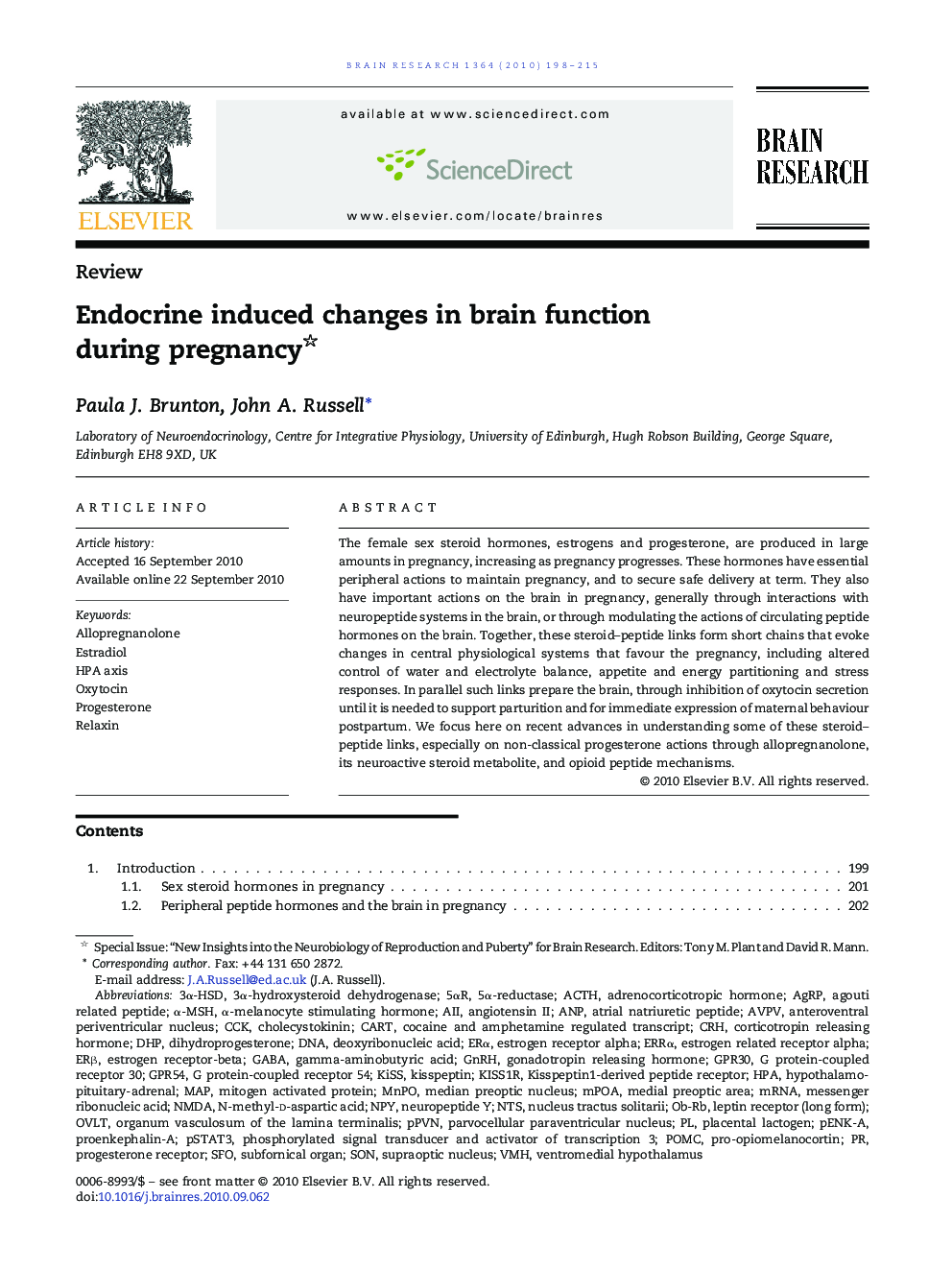| کد مقاله | کد نشریه | سال انتشار | مقاله انگلیسی | نسخه تمام متن |
|---|---|---|---|---|
| 4326396 | 1614075 | 2010 | 18 صفحه PDF | دانلود رایگان |

The female sex steroid hormones, estrogens and progesterone, are produced in large amounts in pregnancy, increasing as pregnancy progresses. These hormones have essential peripheral actions to maintain pregnancy, and to secure safe delivery at term. They also have important actions on the brain in pregnancy, generally through interactions with neuropeptide systems in the brain, or through modulating the actions of circulating peptide hormones on the brain. Together, these steroid–peptide links form short chains that evoke changes in central physiological systems that favour the pregnancy, including altered control of water and electrolyte balance, appetite and energy partitioning and stress responses. In parallel such links prepare the brain, through inhibition of oxytocin secretion until it is needed to support parturition and for immediate expression of maternal behaviour postpartum. We focus here on recent advances in understanding some of these steroid–peptide links, especially on non-classical progesterone actions through allopregnanolone, its neuroactive steroid metabolite, and opioid peptide mechanisms.
Research Highlights
► Female sex steroids promote brain adaptations for a successful pregnancy outcome.
► Allopregnanolone induces central opioid inhibition over oxytocin neurons.
► Centrally produced opioids inhibit inappropriate stress responses in pregnancy.
► A steroid-peptide chain governs the resetting of water homeostasis in pregnancy.
► Sex steroids act with neuropeptides regulating appetite to increase food intake.
Journal: Brain Research - Volume 1364, 10 December 2010, Pages 198–215